- Learning time
- 60 minutes
- First play time
- 150 minutes
Trajan
Designed by: Stefan Feld
In Trajan players compete to best serve ancient Rome in a variety of ways, taking actions by moving pieces around a mancala-style player board, called an action circle.
The large board goes centrally, representing Rome and its surrounds. Players populate their player board by randomly dropping the action markers ( 12 each, in a variety of colours) two apiece into each space. On your turn you pick up all the action markers in one space, and move clockwise around the action spaces, dropping a marker off in each one as you go. The final space you drop a marker in is the action space you take for this turn.
The action spaces help you fight military battles abroad, increase your influence at the senate, help with the construction of Rome itself, debate events of the day at the Forum, trade and ship goods at the Seaport, or curry favour with one of Rome’s greatest leaders by taking the Trajan action.
All of these actions either score points, or contribute to the scoring of points when the game end bonuses are tallied up. You can play a game doing a little of each, or focus your efforts on a particular strategy. A key part of the game, though, is the Trajan action, as it generates extra actions for you – ignore it at your peril. You begin with three Trajan tiles on your board, and when you land your final action marker adjacent, you activate the Trajan action (and following that, take your standard turn).
Turns are kept track of by a time marker: every time it makes a complete circuit of the time track, Demand tiles are flipped over showing what the people of Rome are hungry for – literally, food – but also other demands: gladiatorial games, and religion. You must make sure you have a supply of three current demands at the end of each (of four) rounds, or suffer penalty points.
It’s impossible to describe all that happens in Trajan other than to say the paths to victory are varied: spread legionnaires far and wide with military actions, move workers into Rome and get bonus points for construction, make your business shipping – at the Forum you pick up bonus tiles which can help in a variety of ways; helping you meet demands, generating extra actions, or even as joker tiles to help with construction.
At the end of each round there is interim scoring, and when the game finishes there is an extra scoring criteria for bonus cards (go to the Senate for first dibs on these!). Most points wins
The guru's verdict
-
Take That!
Take That!
Most of the game is about the puzzle-aspect of the acton circle on your playerboard, but don't be deceived: this game contains room for dastardly moves: grabbing what another player wants or needs, or deliberately making a time-consuming move (on the time track, not reality) in order to stop them getting a turn they need before the end of the round.
-
Fidget Factor!
Fidget Factor!
High on a first play. There's a lot going on. Dropping to staccato fast/slow.
-
Brain Burn!
Brain Burn!
Moderate to heavy. Some turns you'll know exactly what you want to do; on others - particularly the final few turns - it'll seem like you've dealt yourself an extremely unproductive action wheel.
-
Again Again!
Again Again!
There's huge variety here - not only because the tiles and cards come out randomly, but because Trajan offers you many different avenues to explore, and a gazillion ways to score points!

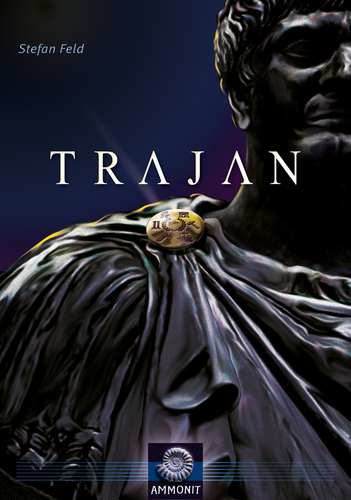
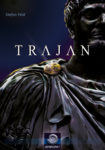
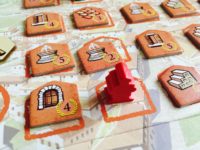
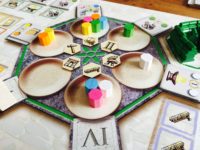
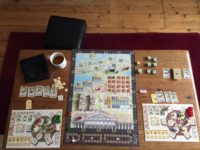
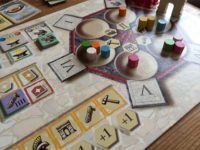


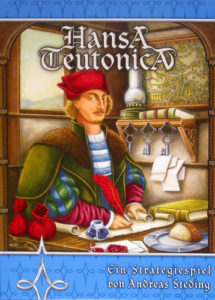
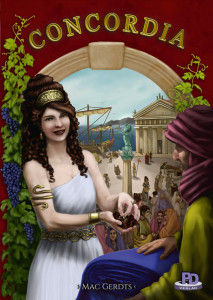
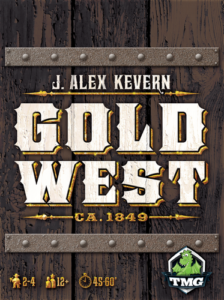
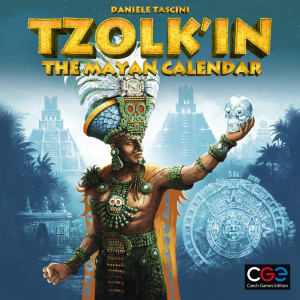
Sam says
Whew. The difference between this complexity four and another such as A Feast for Odin is that whereas Feast bamboozles you with options (over sixty, whereas Trajan, at heart, only has six) is that A Feast for Odin, while it allows strategies, has a turn-by-turn feel of I do A to get B. With Trajan, the sensation is more I do A to trigger B which allows me to take C which is good because if D happens then I'll have E, and if D doesn't happen then I can keep C for F later. Or something like that. Lovers of mind-melding puzzles may adore it, and I think the mancala aspect of it is great. But I'd also say it felt more a collection of cleverly designed, complex, yet well-integrated game mechanics than a thematic immersion in Ancient Rome. All the same though; extremely satisfying when you put it all together and pull off a really canny move. And if the mancala mechanic appeals but you fancy something slightly lighter, you could do worse than trying out Gold West.